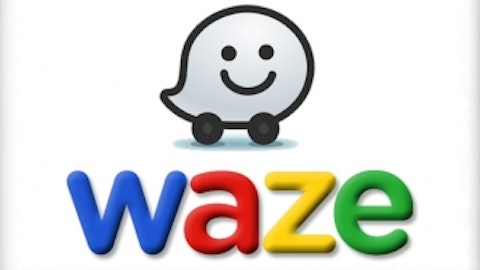There’s been a lot of buzz about Microsoft Corporation (NASDAQ:MSFT)’s search engine Bing lately. Not only did the underdog search engine grow its American market share significantly at Yahoo! Inc. (NASDAQ:YHOO)‘s expense, but it was also introduced as the new default search engine of Apple Inc. (NASDAQ:AAPL)’s iOS 7. Could these positive catalysts give Microsoft Corporation (NASDAQ:MSFT) a much needed shot in the arm to grow its cloud-based ecosystem, which is also fueled by Windows Phones and its Xbox One console?
Rising market share
Microsoft Corporation (NASDAQ:MSFT) has a unique partnership with Yahoo! Inc. (NASDAQ:YHOO), which allows Bing to power all of Yahoo!’s search results. This partnership started in 2009, when both Microsoft and Yahoo! were struggling to hold Google Inc (NASDAQ:GOOG) at bay. As a result, Yahoo!’s share of the search market directly benefits Bing. Recent year-on-year numbers in the U.S. indicate that the growth of Bing’s market share is outpacing its rivals significantly.
| U.S. Market Share % | May 2012 | May 2013 |
| 66.7 | 66.7 | |
| Bing | 15.4 | 17.3 |
| Yahoo! | 13.4 | 11.9 |
| Ask | 3.0 | 2.7 |
| AOL | 1.5 | 1.3 |
Source: comScore (includes mobile search)
Google Inc (NASDAQ:GOOG)’s growth has notably flattened out, which suggests that the largest search engine in the country has very little room to keep growing. Bing has stolen market share away from its partner Yahoo!, as well as minor players Ask and AOL, Inc. (NYSE:AOL). Bing’s growth can be attributed to the continued dominance of Internet Explorer as a PC web browser and the slow and steady rise of Windows Phone 8.
Google Inc (NASDAQ:GOOG) shows notable weakness in mobile search – its mobile search share, which once peaked at 95%, has declined to 84%. Meanwhile, Yahoo! and Bing have captured 11% and nearly 5% of mobile search volume, respectively. Since mobile searches now account for 20% to 40% of total search volume on the Internet, this is a positive indicator that Google Inc (NASDAQ:GOOG) isn’t as invincible as once thought, despite the dominance of its Android operating system.
Yahoo! wants a divorce
All of these numbers indicate that Bing is cannibalizing its partner, Yahoo!, in a very lopsided partnership. In exchange for powering Yahoo!’s search results, Microsoft Corporation (NASDAQ:MSFT) gets 12% of Yahoo!’s revenue from search display ads. In return, Microsoft guarantees a certain amount of revenue per search query from Yahoo!’s sites. If search queries don’t generate enough revenue, then Microsoft Corporation (NASDAQ:MSFT) pays the difference. This revenue guarantee originally expired on Mar. 31, but Microsoft extended the agreement by 12 months on Apr. 30. The revenue from that agreement isn’t significant, at only $12 to $15 million per quarter, which accounts for roughly 1% of Yahoo!’s top line.
Therefore, Yahoo! CEO Marissa Mayer wants to terminate the 10-year search deal with Microsoft, which was signed by her predecessor, Carol Bartz. Mayer is seeking to cut ties with Microsoft to partner up with Google Inc (NASDAQ:GOOG), her former employer, instead. According to Bloomberg, Mayer has already entered an informal agreement with her former Google colleagues, which could take effect if she manages to break ties with Microsoft.
However, Yahoo!’s partnership can only end if Microsoft sells or closes down Bing. That seems very unlikely, since Microsoft has big plans for Bing in Windows Phone 8, Xbox One and Apple Inc. (NASDAQ:AAPL)’s iOS devices. For now, Mayer will have to look for another way out or simply wait until 2019, when the deal expires.
An unlikely ally
Apple Inc. (NASDAQ:AAPL)’s WWDC announcement that it was making Bing the default search engine of iOS 7 shouldn’t come as much of a surprise to tech investors, considering the long-running rivalry between Apple and Google. Although Apple Inc. (NASDAQ:AAPL) has done admirably for a single hardware vendor running on a proprietary operating system, Google has managed to spread its operating system across the fragmented mobile hardware market, just as Microsoft did in the 1990s with the PC market. The heart of Google’s offensive is its ecosystem – mobile search, the Chrome web browser and Google Maps – which have all spread onto iOS devices.
This invasion has made Apple Inc. (NASDAQ:AAPL)’s own comparable software choices, such as Safari and Apple Maps, look inferior. When Google finally added the voice search capability to its Google Now app on iOS, it was clear that Apple needed to pull a counteroffensive against Google to keep it from marginalizing its trademark Siri voice assistant. When Apple initially launched Siri, it was hoping to circumvent Google’s search results by pulling data from other sources, including Yahoo!. Apple reasoned that eventually users would become so dependent on voice search that they would no longer rely on Google’s mobile search apps. Unfortunately, Siri never lived up to those high hopes.
Therefore, it makes sense for Apple to improve Siri by fully integrating all of Bing’s search features into its voice search engine, instead of relying on multiple sources of information. There are two notable changes as well. Apple users now have to explicitly ask “Search Google for” if they want to use Google, and Siri will no longer ask, “Would you like me to search the web?” for unclear questions. Instead, Siri will automatically use Bing to search the web for queries that cannot be directly answered.
Just like its deal with Yahoo!, Microsoft has a lot to gain and very little to lose from its partnership with Apple. I expect Bing to gain more mobile market share and ad revenue from this venture, but this time at Google’s expense, not Yahoo!’s.
The cloud-based conclusion
On top of all this, Microsoft has made it clear that it intends to control living rooms across the world with the Xbox One. All of those fancy voice and gesture activated features will be powered by Bing. In addition, Windows Phone 8 recently doubled its market share in the U.K. to 8%, and rose from 4.3% to 5.6% in the United States. Nokia Corporation (ADR) (NYSE:NOK)’s Lumia devices also advanced from 8th place to 5th place in the global smartphone market. This means that the market share of Windows Phones, which was last reported at 4%, could rise considerably by the end of the current quarter.
All of these positive catalysts, combined with the backing of Apple, suggest that Bing’s market share will rise over the next few quarters. While this will only slightly boost Microsoft’s top line, it could help it significantly advance its cloud-based ecosystem, which consists of Skydrive, Office, Outlook and its Windows/Xbox Live services, to new levels against Google. Therefore, as Google’s growth reaches a plateau, investors should pay careful attention to the rise of Bing, which could change the game significantly.
Leo Sun owns shares of Apple. The Motley Fool recommends Apple and Google. The Motley Fool owns shares of Apple, Google, and Microsoft.
The article Could This Search Engine Be a Game Changer? originally appeared on Fool.com and is written by Leo Sun.
Leo is a member of The Motley Fool Blog Network — entries represent the personal opinion of the blogger and are not formally edited.
Copyright © 1995 – 2013 The Motley Fool, LLC. All rights reserved. The Motley Fool has a disclosure policy.






